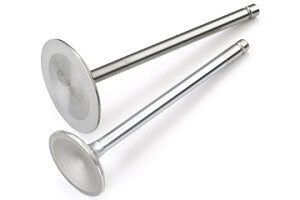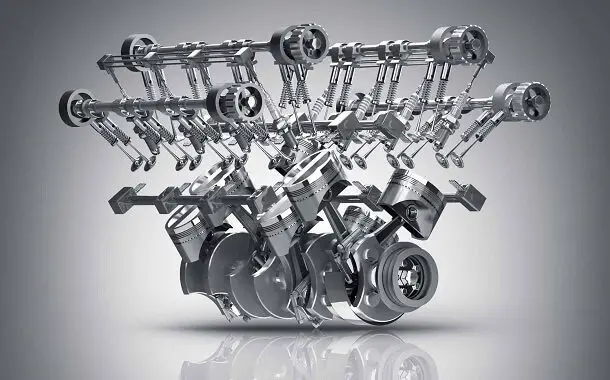How Much Does a Valve Job Cost? – Prices for Valve Adjustment or Replacement
Last Updated on February 21, 2024
Written by CPA Alec Pow | Content Reviewed by ![]() CFA Alexander Popinker
CFA Alexander Popinker
Most budget cars are equipped with four-cylinder engines, and this type of engine is gradually starting to appear in the premium class, high-performance units as well with a similar design. Such an engine can be equipped with various intake systems that involve the use of eight or sixteen valves.
How Much Does a Valve Job Cost?
The average cost of a valve job is around $850, including seven hours of work and the replacement of eight valves. If you don’t have to replace the valves and only want to resurface them you will have to pay only around $780.
The price of a valve job depends on many factors including the labor time, the number of parts that have to be replaced if not resurfaced, and the number of valves that your car has. It is difficult to give an exact price for this job, but you should expect to pay the most for the labor as the valve adjustment job is a very complex task.
The first thing any mechanic will do before going for the valve job is to inspect each part as he cleans and resurfaces them. Be prepared to pay around $8 for each valve if you must replace them after this evaluation.
Each car engine can have 8 or 16 valves. Depending on the condition of the valves, you may be advised to replace all of them or only one. You might end up paying almost $80 only for the parts, depending on the number of valves you will have to replace.
You might also like our articles about the cost of valve gasket replacement, engine camshaft repair, or engine reboring.
When getting the valve job done, the cylinder head and the valve cover are also inspected and resurfaced. You will have to pay more than $500 for the cylinder head and up to $70 for the cover.
There are situations where the cylinder head is damaged and must be replaced resulting in a higher cost. You may spend more than $1,550 for the replacement of the cylinder head, valves, and cover gaskets.
Labor is the most expensive part of the valve job. It would take around 7 hours to perform this job properly, meaning that each valve is cleaned and resurfaced, the seats are drilled out and the valves are reseated. The labor costs are anywhere between $75 and $155 per hour, meaning that you will have to pay around $790 just for labor.
In the table below you will find the average valve job costs for engines of different makes and models.
| Model | Price | Fits |
|---|---|---|
| DNJ EV3165 Exhaust Valve | $8 each or $64 for 8 | 1997 to 2015 Buick, Cadillac, Chevrolet, GMC, Hummer, Isuzu, Pontiac, Saab, 9-7x, ascender, Avalanche, Avalanche 1500, Camaro, Canyon Colorado, Corvette, CTS Envoy |
| DNJ EV1163 Exhaust Valve | $9 each or $70 for 8 | 2009-2015 Chrysler Dodge Jeep Ram/ 1500 2500 300 3500 Aspen, Challenger, Charger, Commander, Durango, Grand Cherokee, Ram 3500/5.7L/ OHV/ V8/ 16V T |
| DNJ IV3160 160 Intake Valve | $8 each or $64 for 8 | 1997-2015 Buick, Cadillac, Chevrolet, GMC, Hummer, Isuzu, Pontiac, Saab, 9-7x Ascender, Avalanche, Avalanche 1500, Camaro Canyon, Colorado Corvette, CTS Envoy |
| DNJ IV1163 Intake Valve | $135 for 16 | 2009-2015 Chrysler, Dodge, Jeep Ram/ 1500 2500 300 3500 Aspen Challenger, Charger commander, Durango, Grand Cherokee Ram 3500 5.7L OHV, V8, 16V, 345cid |
| Motoku 16 Pcs Engine Intake | $34 for 16 | Golf, GTI Tiguan, A3 A5 TT, Q3, Q5, 2.0T, 31.96 |
| Labwork 16 pieces intake exhaust valves | $34 for 16 | 1990-2001 honda crv acura integra B18B1 B20Z2 B20B4 |
| X Authohaux 16pcs Intake Exhaust Engine Valves 12615936 12622329 | $32 for 16 | Mazda CX-7 Speed 3 6 2.3L MZR 2007-2013 |
| VKCNV756 22212-33000 | $57 for 16 | GM 2.0L, 2.2L 2.4L, Ecotec Engine |
| R6616 BMARCR L3k912121 Glossy | $42 for 8 | Hyundai, Elantra, Sonata for Kia, Optima for Mitsubishi, Eclipse, Galant for Plymouth, Colt |
Every car has at least two valves for each cylinder. So, if we do some simple math, we get a number of 8 valves for a 4 cylinder car, 12 valves for a 6 cylinder car, and 16 valves for an 8 cylinder car. The costs of a valve job will increase as the number of valves increases.
Every valve has to be inspected, resurfaced, reinstalled, or replaced so the time needed for this job will increase with each valve. So it will cost less to have a valve job performed on a 4 cylinder car compared to a V6 engine or an 8V engine. You should expect to pay anywhere between $420 and $820 for a valve job on a V4.
The majority of the large trucks have V6 or V8 engines. In case you have such a vehicle, you should budget anywhere between $820 and $1,550 for a valve job.
Engine valves details
A valve is an engine part that opens and closes the openings of gas channels to or from the engine cylinder. Valves are used in almost all four-stroke internal combustion engines with a few exceptions, such as the flap motor (shutter).
Engine valves control what goes into the engine and what comes out. They’re a vital component of any car, truck, or boat that needs fuel intake/exhaust systems to operate effectively.
Valve job labor details
The valve job refers to the act of removing the cylinder heads from the engine to refurbish the valves, seats, and guides and in the end to restore the oil control and the compression. This job can be done by following the steps below:
Firstly, the intake manifold has to be removed, and all the gaskets have to be cleaned of debris.
After that, the cylinder head is removed carefully from the manifold.
The head is checked for any damage or cracks after it has been steamed. This will have to be resurfaced if there is any damage.
The next step is removing the valves from their seats.
These are resurfaced using a bench grinder with a wire wheel.
It may be necessary to knurl or replace the valve guides.
After cleaning the valves, with the help of a stick grinding tool, you will have to grind the seats as well.
Also, these can be replaced or punched out.
Finally, you will inspect the rocker arms, the lifter, the valve springs, and the pushrods to make sure that they don’t have to be replaced and can still be used.
Important things about a valve job
 Your vehicle needs regular care for it not only to run efficiently but also to be safe on the roads. Your engine’s valves may be in danger of cracking or bending, which will cause you to lose engine power and burn excessive amounts of oil.
Your vehicle needs regular care for it not only to run efficiently but also to be safe on the roads. Your engine’s valves may be in danger of cracking or bending, which will cause you to lose engine power and burn excessive amounts of oil.
This is why it’s important for car owners to have their vehicles inspected every 80,000 miles by an auto mechanic at a dealership who specializes in all makes and models.
If not resurfaced in time, valves may cause more severe damage to the car’s engine. If these are already damaged, they must be replaced. This way the lifespan of the engine will increase.
To avoid any engine problems, it is very important that you check your car each time before driving. You can also do a Cold Engine Test by letting the vehicle sit outdoors overnight in an open area and then check the valve cover at the top cylinders.
You will probably need a valve job if there is any residual oil on the head of the cylinders.
The valves of cars with manual transmission can be checked by doing an engine brake or an off-throttle brake. This is done by taking the foot away from the gas pedal and shifting the car down into lower gears until the car stops. After that, you must press the gas pedal.
It will be time for a valve job if there is blue-white smoke exiting the tailpipe or a burnt exhaust after you accelerate the car at a stop. If these signs appear also while idling in traffic then the valves may be damaged.
Bad valve symptoms or symptoms of bad valve seals
One of the first signs that your valves or their seals may be damaged is excessive oil consumption. If you see that the car consumes more oil than usual at any point during a given period, take note and check for leaks before they can cause irreparable damage to critical components like pistons.
Sometimes it’s difficult to find the source of your liquid leaks and would be better to get a valve job. If there’s white smoke coming out after starting the engine and accelerating then it means one thing: your valve seals are probably damaged.
Engine faults can be tricky to pinpoint but a professional will have the tools and expertise necessary for identifying what’s wrong. You should definitely get this checked by an expert if you notice any signs of excessive exhaust in your vehicle or loss of power when driving.


Leave a Reply
Want to join the discussion?Feel free to contribute!